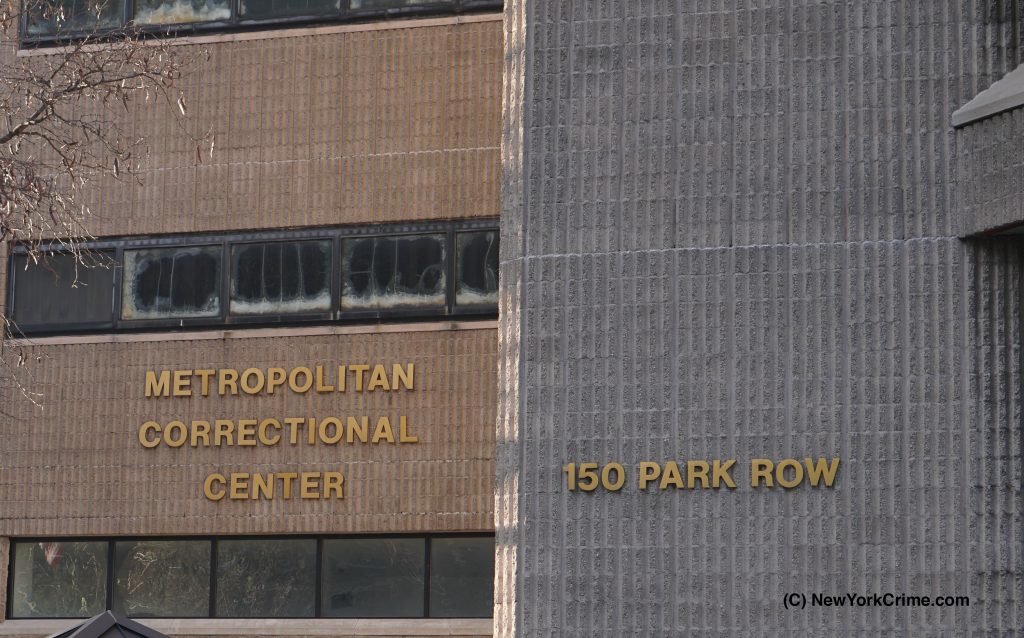
Federal correctional officer Victor Casado, 35, of the Bronx, New York, was arrested on April 5, 2018, and charged with taking bribes to smuggle cellphones, alcohol, over-the-counter medications, and food into the Metropolitan Correctional Center (MCC), a federal jail in lower Manhattan.
The alleged smuggling scheme
According to the complaint, sometime in the second half of 2016, an inmate at the MCC named Reza Zarrab was approached by another inmate who told him that Casado wanted to give him his phone number. The inmate suggested that Zarrab should payoff Casado. Zarrab agreed and directed one of his attorneys to pay Casado $5,000. Zarrab’s attorney arranged for a car service driver who worked for her to deliver the cash.
From mid-2016 to mid-2017, Zarrab paid Casado a total of more than $45,000.
Zarrab asked Casado, through an inmate (Inmate-2), if he could provide alcohol, and Casado smuggled alcohol into the jail for Zarrab on at least five occasions. Casado hid the alcohol in plastic water bottles and passed them on to Inmate-2 who delivered them to Zarrab.
In the spring of 2017, Zarrab asked Casado to smuggle a cellphone into the jail for him. Casado agreed and smuggled a cellphone into and out of the jail for Zarrab on multiple occasions. Zarrab paid Inmate-2 to receive the phone from Casado at the start of his shift and return it to him at the end of his shift.
Inmate-2’s wife was an active participant in the scheme. She met with Zarrab’s attorney to receive payments on behalf of her husband and other inmates, and sent money to other inmates’ commissary accounts. Inmate-2 and his wife received about $10,000 for their services.
Casado asked Zarrab for money to help one of his family members in the Dominican Republic. Zarrab agreed and directed his attorney to pay Casado $15,000.
According to usajobs.gov, correctional officers in the federal prison system earn a salary of $41,187 to $54,586 per year, however Casado may have earned more due to his higher rank as a Senior Officer Specialist.
The evidence against Victor Casado
The complaint cites numerous sources including information from inmates, wire transfers, cellphone records, and recorded telephone calls.
Inmate-2 and his wife were caught discussing the smuggling scheme over recorded telephone calls.
In mid-2017, Casado told an inmate that another correctional officer had learned about the scheme and had warned him to stop bringing contraband into the jail. Around that time Casado asked one of his coworkers, a lieutenant, if there was a case against him.
In May 2017, Zarrab was abruptly transferred to the Special Housing Unit and all of his property was confiscated. Among that property was a handwritten note that Casado had given to Zarrab containing the name and contact information of a cousin of Casado’s in the Dominican Republic. In June 2017 Casado made two unsuccessful attempts to retrieve Zarrab’s property.
Casado allegedly entered into a romantic relationship with a paralegal who he met while she was meeting with an inmate at the MCC in 2015 or 2016. Casado later asked the inmate for money to travel to the Dominican Republic and instructed him to send the money to the paralegal. Casado allegedly warned the inmate that there would be consequences if he told on him.
The charges against Victor Casado
Casado has been charged with one count of conspiracy to commit bribery and to introduce contraband into prison, one count of bribery, one count of introducing contraband into prison, one count of conspiracy to commit honest services wire fraud, and one count of honest services wire fraud.
The honest services fraud law makes it a crime for public officials to use a scheme or artifice to deprive someone of “the intangible right of honest services.” Violations are punishable by up to 20 years in prison. In this case, Casado is accused of depriving his employer, the Federal Bureau of Prisons, of honest services by devising a scheme to defraud an inmate out of money.
Casado was released on a $200,000 personal recognizance bond on the day of his arrest. The bail conditions include travel restrictions, strict pretrial supervision, a curfew, electronic monitoring, and restrictions on possessing weapons.
Part two in this series focuses on the case that led to Zarrab being detained at the MCC.
Update: Casado pled guilty on August 24.